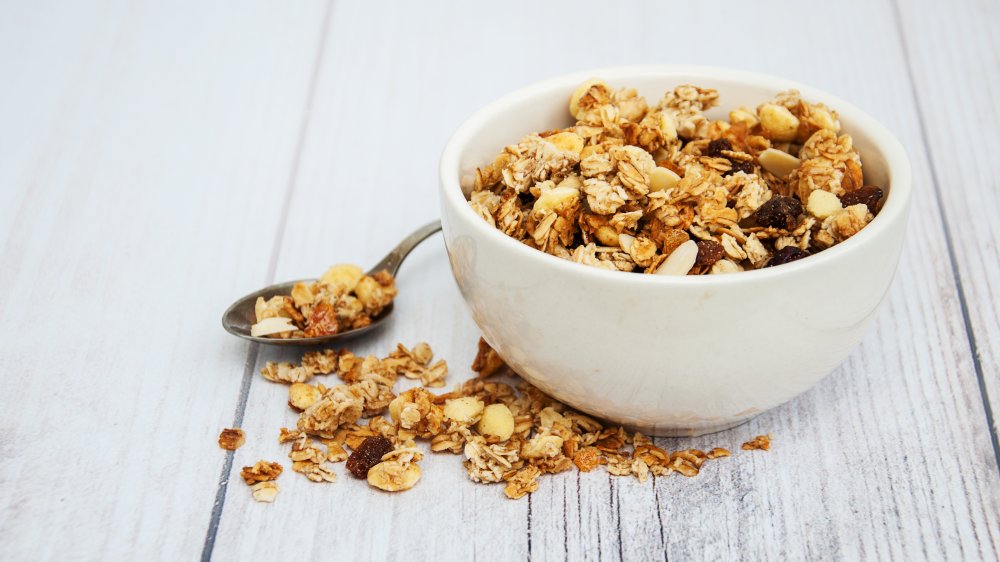Read This Before Eating More Granola
For many people, granola is a rather lovely breakfast staple that goes well with different kinds of pairings in your pantry. Whether you like having your bowl of granola with almond milk or a bit of greek yogurt, lots of fresh fruit or a handful of nuts, its versatility makes it easy to see why this is such fan favorite. There is, however, a debate that has found its way into the conversation: is granola actually harmful to your health and too good to be true? According to Well + Good, granola does have a few health benefits such as the fact that is a good source of fiber and iron and can be an easy way to incorporate both into your diet. That's not all, though.
Despite the fact that granola seems like a healthy start to your day, it may not be great for you as a breakfast option. This is why.
Why granola can be considered unhealthy
Here's the lowdown: store-bought granola can often come packed with a lot of unnecessary fat and calories, as explained by Healthline. Another big problem with readymade granola that it can have a surprising amount sugar, too, as much as 17 grams in one serving. Gulp. For perspective, consider this: The American Heart Association advises men to stick to 36 grams of sugar every day while women are advised to limit their intake to 25 grams.
Plus, granola can contain additional ingredients like vegetable oil, nut butter, honey, or dried fruit, which can add even more sugar, as illustrated by Healthline. While it's always okay to treat yourself and eat what feels right for you, but if food with a high sugar content is something you'd like to avoid — granola may not be your best option. You're much better off preparing a healthier homemade version of granola and controlling the ingredients you use. Plus, it's always a good idea to enjoy granola in moderation and replace sugar with more natural alternatives.

